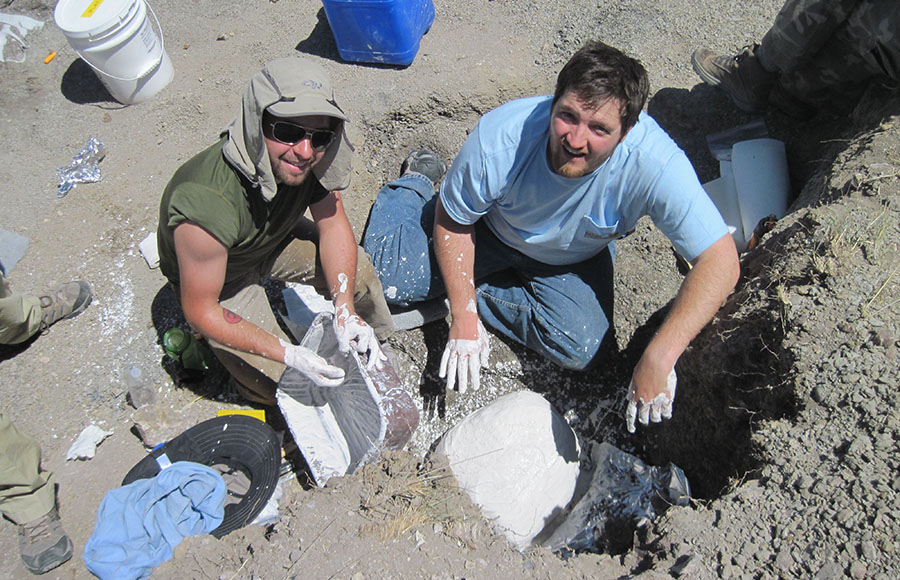
Geology majors Michael Ludlam, left, and Isaiah Reed prepare a plaster jacket to encase a large fossil recovered from the Placerias Quarry in northwestern Arizona this summer. The jacket protects fossils when they are transported from a dig site to an approved repository—in this case, the N.C. Museum of Natural Sciences. Photo by Dr. Andrew Heckert
BOONE, N.C. — It's known as the "Triassic trip"—an annual excursion to recover fossils in the American Southwest from the Triassic period.
Geology students at Appalachian State University gain knowledge from the field experience, while also collecting resources for the N.C. Museum of Natural Sciences' Paleontology Section and its research and collections.
The partnership between Appalachian and the museum is in its third year. In that time, the museum has received about 50 plaster-jacketed fossils of various sizes, with weights ranging from 10 to 100 pounds. In a process that can take weeks to years, the museum will extract the fossils for research or exhibit.
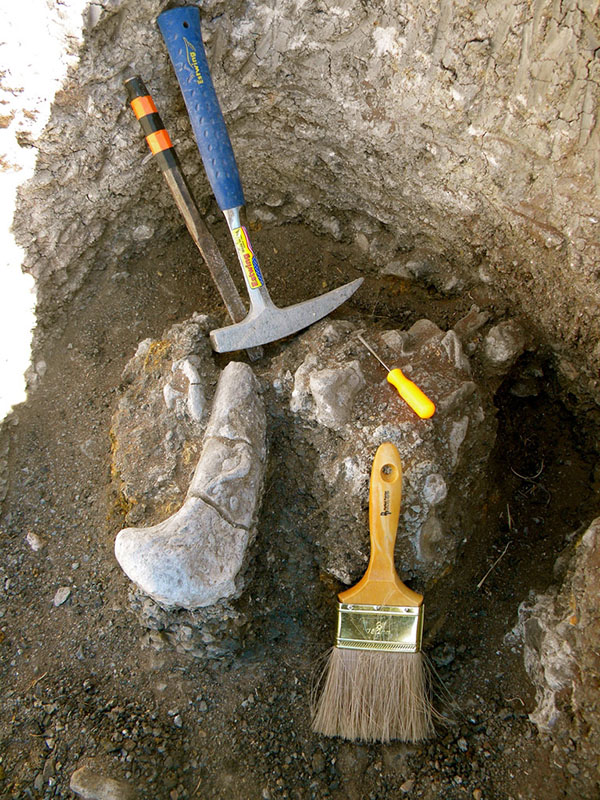
This image shows the upper end of a femur (lower left) from a phytosaur, an ancient relative of the crocodile. A variety of tools are used to carefully remove fossils such as this one from layers of sediment or free them from rock. Frequently used tools include brushes, small picks, hammers and rock chisels. Photo by Alex Harrison
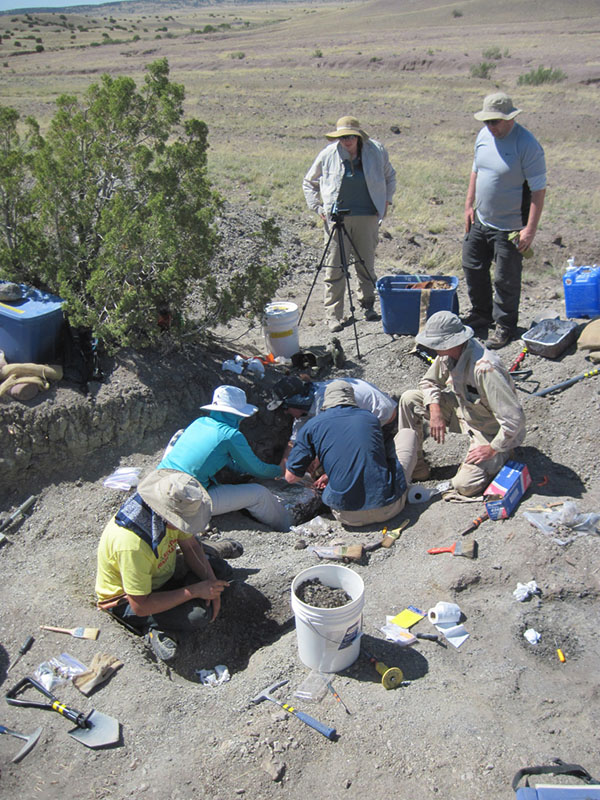
Appalachian students filmed students and volunteers at work in the Placerias quarry to create short video clips to be used for outreach and education. Here, geology major Catharine Jones films a crew making a plaster jacket to transport a hip bone of the fossil aetosaur Desmatosuchus. Aetosaurs were distant relatives of the crocodile that somewhat resembled large armadillos. Photo by Dr. Andrew Heckert
Fossils recovered by students during past "Triassic trips" include hipbones of an Aetosaur, which is an early relative of the crocodile, and bones from a Placerias, a mammal-like reptile that lived during the late Triassic period.
The N.C. Museum of Natural Sciences' collections include fossils from the same time period unearthed in North Carolina. "The long-term research goal is to help us understand the state's Triassic period," said Vince Schneider, curator of paleontology at the museum. "We are getting lots of material from North Carolina, but we don't have a lot of comparative material. These trips are helping us build a decent Triassic collection in the state."
This year's trip was to the Placerias Quarry in northeastern Arizona, which was first excavated by the University of California Berkley in the 1930s and later by the Museum of Northern Arizona in the 1970s and 1980s. It has been at least 20 years since the site was actively studied.
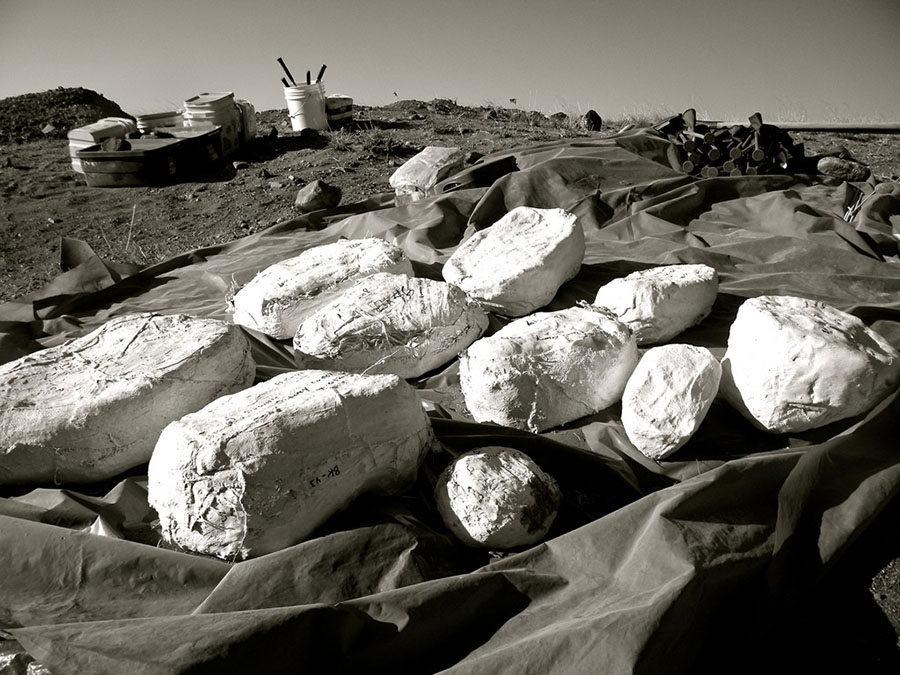
The largest fossils collected from the Placerias Quarry were wrapped in a protective jacket of burlap and plaster. The fossils have been taken to the N.C. Museum of Natural Sciences' Paleontology Section. The museum is a designated repository—an institution that is accredited by the American Association of Museums to hold fossil specimens in perpetuity for research or display. Photo by Alex Harrison
"Historically it's known to be a very rich site," said Professor Andrew B. Heckert, director of the McKinney Geology Teaching Museum at Appalachian and a member of the Department of Geology faculty. He leads the trip each year.
In this latest trip, students unearthed dime-sized upper arm bones, probably from an animal smaller than a squirrel; a bone that might be from a dinosaur; and pieces of bone possibly from a Trilophosaurus, a lizard-like reptile probably weighed up to 100 pounds and growing to about eight feet in length.
"If we didn't have Appalachian, we would have a more difficult time getting this done," said Schneider. "Andy and his students help us get more material than we would otherwise."
Fossils recovered from past Triassic trips have led to research publications and presentations by Heckert and his students in publications such as the Journal of Vertebrate Paleontology, Rocky Mountain Geology and Geological Society of America Abstracts.
What do you think?
Share your feedback on this story.
About the Department of Geological and Environmental Sciences
Located in Western North Carolina, Appalachian State University provides the perfect setting to study geological and environmental sciences. The Department of Geological and Environmental Sciences provides students with a solid foundation on which to prepare for graduate school or build successful careers as scientists, consultants and secondary education teachers. The department offers six degree options in geology and two degree options in environmental science. Learn more at https://earth.appstate.edu.
About the College of Arts and Sciences
The College of Arts and Sciences (CAS) at Appalachian State University is home to 17 academic departments, two centers and one residential college. These units span the humanities and the social, mathematical and natural sciences. CAS aims to develop a distinctive identity built upon our university's strengths, traditions and locations. The college’s values lie not only in service to the university and local community, but through inspiring, training, educating and sustaining the development of its students as global citizens. More than 6,800 student majors are enrolled in the college. As the college is also largely responsible for implementing App State’s general education curriculum, it is heavily involved in the education of all students at the university, including those pursuing majors in other colleges. Learn more at https://cas.appstate.edu.
About Appalachian State University
As a premier public institution, Appalachian State University prepares students to lead purposeful lives. App State is one of 17 campuses in the University of North Carolina System, with a national reputation for innovative teaching and opening access to a high-quality, cost-effective education. The university enrolls more than 21,000 students, has a low student-to-faculty ratio and offers more than 150 undergraduate and 80 graduate majors at its Boone and Hickory campuses and through App State Online. Learn more at https://www.appstate.edu.
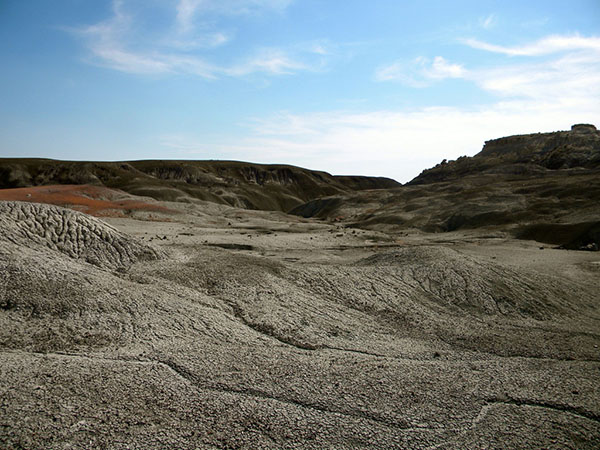
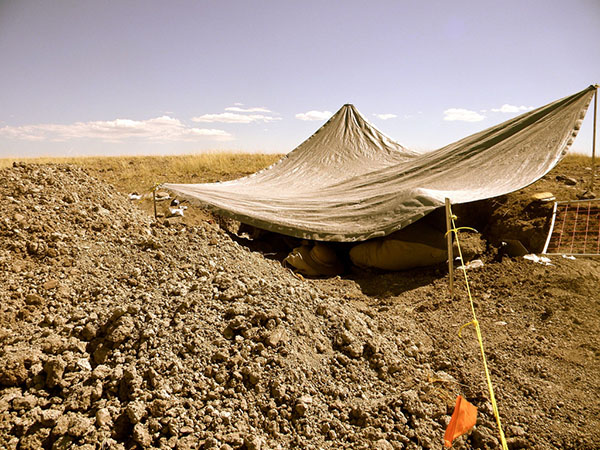
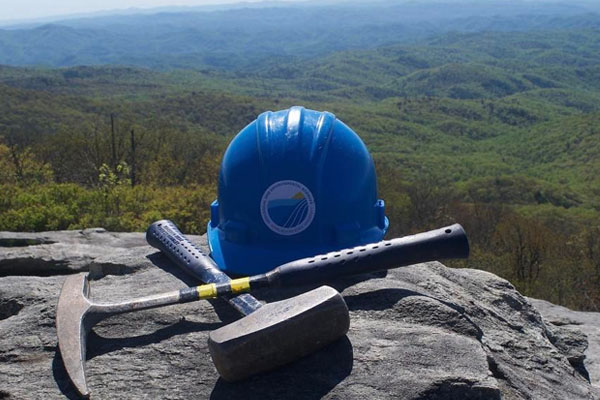


![How NCInnovation Is Rethinking Economic Development in North Carolina [faculty featured]](/_images/_posts/2026/02/rethinking-economic-development-600x400.jpg)








